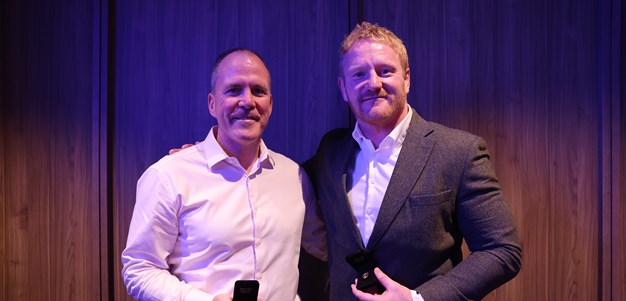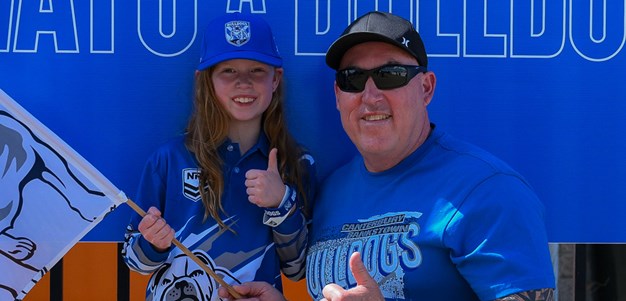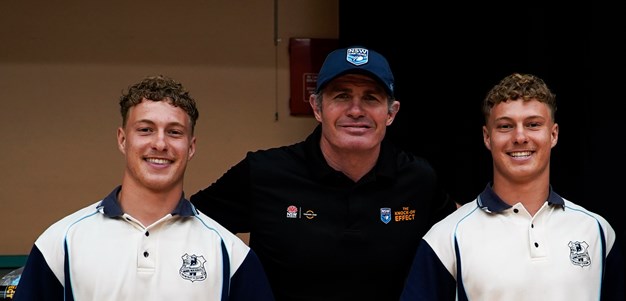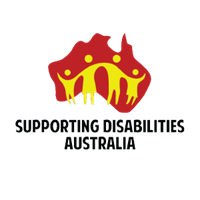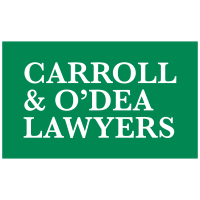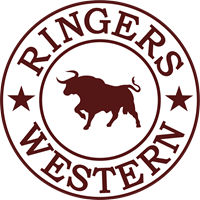After seven and a half seasons with Easts, Rod Silva sought a release from the Roosters to move to Canterbury midway through 1995 and the talented fullback never looked back.
Silva played 100 games for the Bulldogs, including being a member of the Premiership winning team of 95’, before finishing his time at Belmore at the end of 2001.
Lightning fast with an amazing sidestep, the talented number one is one of the most loved Canterbury players amongst all members and fans.
A member of the New South Wales police force, Rod reflects on his time in the blue and white.
HOW DID YOU BALANCE WORKING AS A POLICE OFFICER AND PLAYING?
It was hard, but it wasn’t about money. It was just about making sure I had something that I always wanted to do and that was being a police officer. The last four years of my playing days, Canterbury were able to balance my work and playing life. During the football season the police force also assisted where I would work set shifts to keep my hand in the job. I wasn’t a player who could think football seven days a week. It was good for me because it took my mind away from football and give me something else to focus on. I’m still a cop and I have been in the force for more than 20 years.
WHAT IMAPCT DID BILLY JOHNSTONE HAVE ON?
I think Billy Johnstone changed my life when I came here. We trained hard at my previous club the Roosters, but Billy was able to get the best out of me by calling me names and ticking boxes in my head. If I met Billy Johnstone when I was 18, my career would have been different and better if I had met him earlier.
HOW DID THE MOVE TO BELMORE FROM EASTS HAPPEN?
It was the Super League/ARL war.
I’d signed with Super League after speaking with my manager. We thought that was the best way to go.
I played the first two games in first grade at the Roosters and then for the next four I was put on the bench. Little did I know I wasn’t going to get a run because I had signed with Super League. I wanted to play footy.
My manager put the feelers out and Canterbury were very keen. Chris Anderson was the coach and I think he was happy to have me.
Because I didn’t know any different, it was a tougher environment. Not that we didn’t train hard at the Roosters, but in those days it was two days a week and a Saturday morning at the Roosters. At Canterbury you knew you had to train, and you were training hard. Everyone was focussed on the same thing and that was playing in the big games.
I felt very fortunate because I was coming to a great club. It was a great team. They got beaten in the previous year’s grand final by Canberra who were a super side. It was a privilege to have an opportunity to play in the team. I had my first daughter that year. She was born the day before we played Canberra on Saturday (Semi-final). It was a great year.

WHAT ARE YOUR MEMORIES OF THE 1995 FINALS SERIES AFTER FINISHING SIXTH AT THE END OF THE REGULAR SEASON?
Every week we were the underdogs which suits us when ever we play. We never discussed the other teams and we just worried about ourselves. We had this undying belief in ourselves that we could beat who ever we played. Every week the media wrote us off and every week we proved them wrong.
HOW DID YOU FEEL WINNING THE 1995 PREMIERSHIP?
You can’t explain it! I remember the week was quick. We were busy. We had a lot of commitments, but when the game rolled around it was half-time before you knew it. It was just a willing desire from the team to win it. We all thought it was Baa’s (Terry Lamb) last game so Peter Moore was pumping it up all week. It was a team that played for each other. We didn’t have any weaknesses and that was the entire squad.
BEING A MEMBER OF THE 1998 TEAM, TELL US ABOUT THE AMAZING RUN TO THE GRAND FINAL?
It was amazing and again we were written off. The make up of the side was a lot different and we had a lot of younger blokes coming through – Corey Hughes, Brent Sherwin, Hazem El Masri and Willie Talau, but we also had the experience of Darren Britt, Jason Hetherington, Glen Hughes and Matthew Ryan. No one gave us a chance, which was to their downfall.

WHERE DID THE LEATHAL SIDESTEP COME FROM?
When we were kids we played on the streets like most young guys. My brother was a good side stepper, so I just tried to copy of him. We had to dodge street poles and cars and all the other things you do when you play on the road. As I got older, I realised it could be a great weapon, so I didn’t really focus on it, but I relied on it more. I tried to be able to sidestep off both, because if I couldn’t, I would have let myself down with what I could do with the ball.
WHAT DID IT MEAN TO PLAY FOR THE BULLDOGS?
I’m very proud to have played for this club and I wish I came here earlier. A very proud and family club filled with great Canterbury people who love the club. The one thing I noticed between the Roosters and the Dogs when I first arrived here, everyone expected us to play in the big games. Everyone expected us to play semi-final football. Everyone expected us to be alive in September.
It looks like you may be using adblocking software to view this site.
Many features on the site, such as video playback, may not work properly when using adblocking software.
Please whitelist our domain or disable your adblocker to access all features and videos.
Classic Match: 1995 Grand Final

